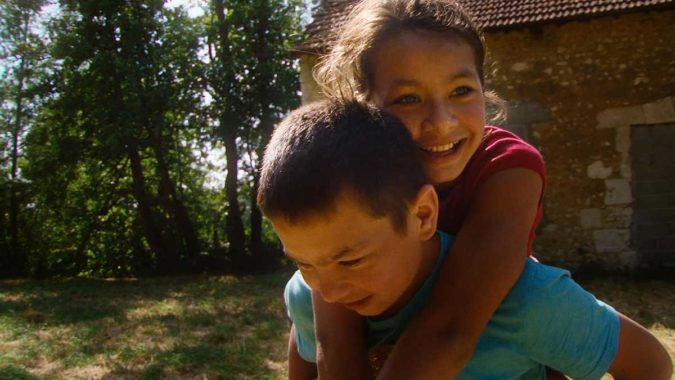Spartacus & Cassandra – A Curatorial Statement by Dorothy Woodend
January 22, 2016

In the previous DOXA Festival we offered a very special program called French French, which encompassed seven new French documentaries and seven archival films drawn from the legendary series Cinema, de notré temps. This collection, curated by Thierry Garrel, who headed up the Documentary unit at Arté for more than thirty years, was a revelation for me. I knew the work of Jacques Rivette, Jean Renoir and Eric Rohmer, but it was the work from emerging filmmakers that was a genuine surprise. One of the most thrilling discoveries was Ioanis Nuguet’s film Spartacus & Cassandra.
The story begins with Spartacus (age 13) and his sister Cassandra (11) living on the streets of Paris with their Romani parents. The situation has been slowly getting worse over the years, and the French authorities have finally stepped in. The decision to remove the kids from their parents’ care and place them with foster parents is not easy for anyone. Their mother seems to be suffering from mental illness and their father is a violent drunk. Neither is capable of taking care of their kids. The only beacon of hope is a young circus artist named Camille, who steps up and assumes the role of parent and caretaker. You get the sense that there couldn’t have been a better person for the job. A fierce young woman, who does not take any shit, Camille possesses an innate understanding that part of growing up is learning to deal squarely with reality. As she hounds Spartacus to do his homework and go to bed at a reasonable hour, or organizes a birthday party for Cassandra, you realize that parenting is akin to a balancing act. (Camille’s trapeze training comes in handy, here.)
When the opportunity to move into an old house in the countryside comes up, you can’t help but hold your breath in hope that things will work out for everyone. But even as the kids are coming to terms with the changes in their lives, their parents continue to spiral downwards. Spartacus’s emerging understanding of the larger forces at work is clear, as he states unequivocally that the fact that his parents continue to live in poverty and filth is something he cannot accept. Still, the film’s final act is one of resounding hope for the future.
These are just the bare facts of the film, what is harder to capture is the fleeting and fragmented beauty that attends the narrative. Whether it is brother and sister learning to plant trees, or splashing about in a river. In its neo-Malickian take on the splendor of the natural world, it is closer to poetry than nonfiction cinema. The miraculous escape from poverty sometime feels like an urban fairytale, but despite its reverence for love, and courage, the film is unsparing in looking at the reality of class and racial divides in French society. After its screening in Vancouver, it has been awarded multiple prizes and is now shortlisted for a César Award in France for Best Documentary.
I am very happy to have the opportunity to bring this film back to Vancouver as part of the PuSh Festival’s film series. I hope you enjoy this lovely film.
Dorothy Woodend
Director of Programming
DOXA Documentary Film Festival
Enjoy free film screenings at the 2016 PuSh International Performing Arts Festival. Spartacus & Cassandra will screen 5PM Wednesday, January 27, 2016 at SFU Woodwards’ Djavad Mowafaghian Cinema, SFU’s Goldcorp Centre for the Arts. Our final free film screening will be Sol, screening 5PM Wednesday, February 3, 2016.